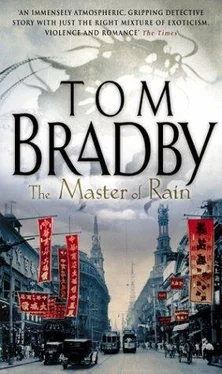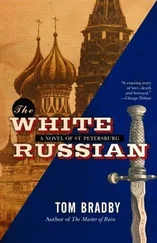“We know he likes to abuse girls. He likes to be violent to the women he sleeps with.”
“What evidence do you have?”
“We are very close to finding a relative of one of the dead girls whom we believe will be able to positively identify Lewis as her killer.”
“Who is this?”
Field didn’t answer.
“Is there any direct evidence of Macleod’s corruption or of the activities of what you call the cabal?”
Field sighed.
“Then you must go.”
“I’m not going to run away.”
“This is not London, Richard, or New York or Paris. We cannot always win the battle, but we must win the war. I cannot go to the council about Lewis or even Macleod without cast-iron evidence, and you have none. Macleod will certainly be the new commissioner now, whatever I say, unless we have something concrete to block his promotion.” Geoffrey sighed. “Your investigation has rattled cages clearly, but if Granger and your colleague have been killed, then I’m afraid there can be no further discussion. Go to Hong Kong. Get on a ship. We can arrange for you to join the police there for a time.” Geoffrey shook his head slowly and sat down wearily on the sofa opposite. Field noticed, as he bent down, that his uncle had a small bald patch on the dome of his sandy head.
“Can’t Macleod be arrested?”
“On what evidence?” Geoffrey arched his hands, then raised them to his chin. “You’re the policeman, Richard. You tell me what evidence you have.”
Field looked at his reflection in the polished top of the coffee table. “I have responsibilities.”
“Nonsense.”
“A girl.”
“A Russian?”
“Yes.”
“Natasha Medvedev.”
Field felt his heart thumping again. “How did you know?”
“Penelope said you’d formed an attachment. I’ve seen her sing at the Majestic.” Geoffrey’s face was hard. “You have no responsibilities to her or anyone else, Richard. Don’t be a fool. You must go. If you involve yourself with this woman any further, then none of us will be able to help you.”
Field’s mind was spinning. Geoffrey stood and went and got the decanter of whiskey from the walnut sideboard. He refilled both glasses and then lit another cigarette. He sat heavily. “Russian girls have a habit, Richard, of not being everything that they seem.”
“I know that.”
“You wouldn’t be the first to be deceived.”
Field nodded, without meeting his uncle’s eye.
“Natasha Medvedev is a beautiful girl. So many are.” Geoffrey inhaled deeply on his cigarette. “I’m sure her story is tragic. They all are.” Field looked at his uncle. “The fact is, you will not be able to save her from herself.”
“I have no choice.”
“It’s love, I suppose.”
Field didn’t answer, staring at the light dancing in the golden liquid in his glass. He looked up. “I’ve no right to ask this, but could you get her a passport and the correct papers?”
Geoffrey stared down at his hands. Field became convinced that he would say no. “Do you have her full name?” he asked.
“Natasha Olga Medvedev.”
Geoffrey pushed himself to his feet and shuffled over to the sideboard, searching for a pen and paper.
“Date of birth?”
“April 1, 1900,” Field said, inventing it.
Geoffrey turned toward him, suddenly smiling. “I’ll see what I can do, but on one condition. There can be no debate about this. You must clearly understand the nature of this city and your predicament. You must leave tomorrow on the first ship available. I will do what I can for the girl, but I now wish you to put her out of your mind. Is that clear?”
Field did not respond.
“There must be no misunderstanding, Richard. You can do nothing further for this girl. You must leave at once.”
Field walked to the race club and squatted in the shadows beneath the clock tower. He did not know where else to go, and from here he could watch her apartment. There were no lights on up there. A family was sleeping alongside him, huddled together. The father, who was awake, watched him solemnly as the hours ticked past. Field thought of the family Caprisi had been helping and wondered what would become of them.
He remembered the ball at the race club he had attended with Penelope.
At about four o’clock a newspaper seller began to set up on the street corner, and Field stepped out of the shadows and bought a copy of the North China Daily News. The headline screamed “Bloody Friday.” He walked down to a gas streetlamp away from the Happy Times block and held the paper up to the light. Most of the articles were devoted to Patrick Granger -one of the finest public servants Shanghai has ever seen. There was a short report on Caprisi, alongside his police ID photograph. The article described him as a detective from Chicago, who’d come to Shanghai after killing his wife and young son in a drunken road accident. Field wondered where they’d got such detailed information. From Macleod, presumably, twisting the knife even after the American’s death.
Field folded the newspaper and checked how much money he had with him. He managed to scrape together twenty dollars.
He stepped back into the shadows, turned away from the family, took out his revolver, and checked that all the chambers were loaded. He had no further ammunition. He did not believe it was safe to go back to Carter Road.
He wondered if Macleod really would let him leave. He looked at his watch once more and then nodded to the father of the family, who was still staring at him, and began to walk in the direction of the French Concession.
The Russian church stood in darkness, the gravestones ghostly in the dim glow of the streetlamps.
Field stood just inside the entrance. He looked at his feet. His shoes were scuffed and dirty. He ran his hand over his stubble and through his hair.
It had only been nine days, but he found it hard to recall a world in which his every thought had not been defined by this woman, or to imagine one in which it might not be.
He thought he saw the first light of dawn creeping over the rooftops. He scanned the graveyard again. He imagined that she, too, might be waiting in the shadows.
Field thought he now understood what it was to await a sentence of death.
He waited, motionless, movement no longer releasing him from his agitation.
Field watched the gate as the dawn peeled away the darkness.
He took a step toward the gate and then another and then, on instinct, spun around.
She stood by the far wall, a black raincoat draped over her shoulders, her hair tied to one side. She was watching him, and although every fiber of his being screamed at his legs to run with all the force they could muster, he moved slowly, listening to his footsteps on the gravel path.
Her hands were in front of her, clasped together. “Hello, Richard.”
Field waited, hardly trusting himself to speak. “I didn’t think you would come.”
“You didn’t leave me much choice.”
“I know he’s your sister’s boy.”
Neither of them moved.
“When Natalya was killed,” Natasha said, “I tried to go. I took Alexei and got us onto a ship to Manila.” She stared at the ground by his feet. “For a few moments I felt… I believed in the impossible: that by acting swiftly I had got him out of this terrible place.” A look of inconsolable misery crossed her face. “But I turned around,” she said, “and he was gone.” She put her hand to her cheek, then let it fall. “A man came up to me to say that Alexei had been taken to an orphanage. Once a week, I go to Lu’s house and one of his men takes me in a car somewhere-not always the same place-and I am allowed to go to a room where I can look through a window and see Alexei playing. I cannot speak to him or contact him, but I can watch him for just a few moments, and then they take me away. If I ever fail to do what they say, then I know what will happen.”
Читать дальше












